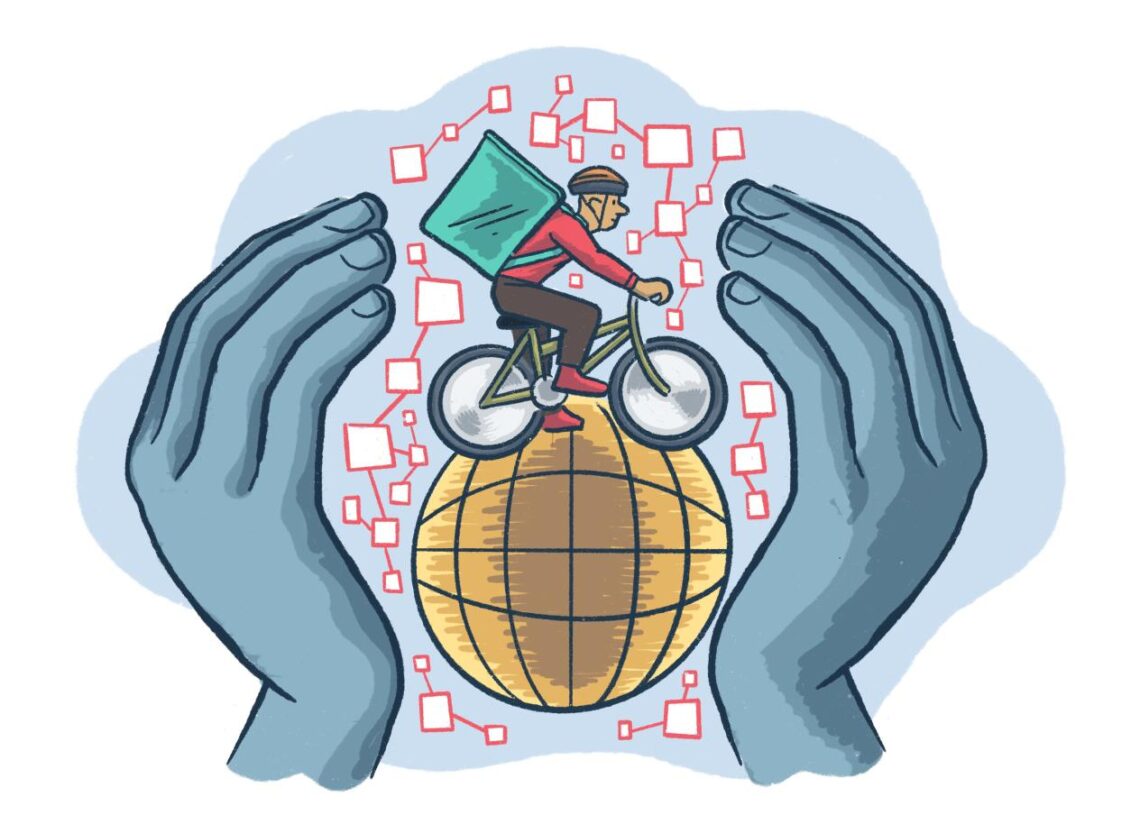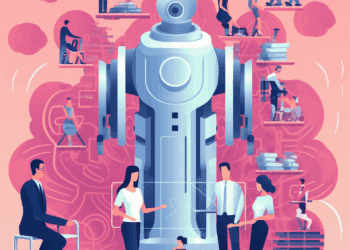The traditional employment landscape is undergoing a monumental transformation. The rise of the gig economy, a flexible system where temporary, short-term contracts and freelance work are commonplace, is reshaping labor markets worldwide. Far from a niche phenomenon, this dynamic model is empowering individuals with unprecedented autonomy and offering businesses agile solutions for talent acquisition, fundamentally altering the way work is structured and perceived. This comprehensive article delves into the core principles of the gig economy, exploring its foundational drivers, the diverse platforms and opportunities it presents, its transformative impact on various sectors, and the significant challenges and immense opportunities that accompany this pervasive shift in global work culture.
What is the Gig Economy?

At its essence, the gig economy refers to a labor market characterized by the prevalence of short-term contracts or freelance work, as opposed to permanent jobs. Individuals in the gig economy are often referred to as “gig workers,” “freelancers,” “independent contractors,” or “on-demand workers.” They typically work on a project-by-project basis, offering specialized skills or services to multiple clients or platforms.
The term “gig” originally referred to a musician’s single performance engagement, but it has expanded to encompass a vast array of work arrangements facilitated by digital platforms. This model represents a significant departure from the traditional 9-to-5, full-time employment structure, offering flexibility to workers and cost-efficiency to businesses.
Key characteristics defining the gig economy include:
- Flexibility and Autonomy: Gig workers often have significant control over their hours, location, and the projects they choose to undertake, offering a degree of work-life balance often absent in traditional employment.
- Project-Based Work: Work is typically broken down into specific tasks or projects, rather than ongoing, continuous employment.
- Independent Contractor Status: Gig workers are generally classified as independent contractors, not employees, which has implications for benefits, taxes, and labor rights.
- Digital Platform Facilitation: A vast majority of gig work is facilitated through online platforms or apps that connect workers with clients or consumers (e.g., Uber, Fiverr, Upwork, DoorDash).
- Diverse Skill Sets: The gig economy encompasses a wide range of skills, from highly specialized professional services (e.g., IT consulting, graphic design, legal advice) to on-demand services (e.g., ride-sharing, food delivery, handyman services).
- Supplemental Income or Primary Livelihood: For many, gig work provides supplemental income, while for others, it represents their primary source of livelihood.
A. Foundational Drivers Fueling the Gig Economy’s Explosion
Several interconnected factors have converged to propel the gig economy into the mainstream, making it a viable and attractive option for millions globally.
- Technological Advancements:
- Internet Connectivity: Widespread, high-speed internet allows for seamless communication and coordination between gig workers and clients across geographical boundaries.
- Mobile Technology and Smartphones: Smartphones and mobile apps provide the essential infrastructure for on-demand services, enabling real-time matching of supply and demand (e.g., finding a ride or ordering food).
- Digital Platforms and Marketplaces: Online platforms (e.g., Upwork, Fiverr, TaskRabbit, Uber, Grab) act as intermediaries, efficiently connecting workers with jobs and managing payments, reviews, and reputations.
- Cloud Computing: Provides scalable and accessible infrastructure for these platforms, allowing them to manage vast numbers of users and transactions.
- Shifting Workforce Demographics and Preferences:
- Desire for Flexibility: A growing segment of the workforce, particularly younger generations, prioritizes flexibility, autonomy, and work-life balance over traditional career paths.
- Diversified Income Streams: Many individuals seek supplemental income to manage living costs, pay off debt, or pursue personal passions.
- Skill Specialization: The gig economy allows professionals with niche skills to offer their expertise to a broader client base without being tied to a single employer.
- Aging Workforce: Some retirees or semi-retirees engage in gig work to stay active, supplement retirement income, or share their accumulated experience.
- Economic Factors and Business Needs:
- Cost Efficiency for Businesses: Companies can access specialized talent on a project basis without incurring the overheads of full-time employment (e.g., benefits, office space, training). This offers significant cost savings and allows for agile scaling of operations.
- Access to Global Talent: Businesses can tap into a worldwide pool of highly skilled freelancers, finding niche expertise that might be unavailable locally.
- Project-Based Work Models: Many modern business projects are short-term or highly specialized, making it more efficient to hire independent contractors rather than permanent staff.
- Economic Uncertainty: During economic downturns, gig work can serve as a crucial safety net or primary income source for individuals facing unemployment or underemployment.
- Globalization and Remote Work Acceptance:
- Border-Agnostic Work: The internet facilitates work across geographical boundaries, enabling individuals in one country to provide services to clients in another, fostering a truly global talent marketplace.
- Increased Acceptance of Remote Work: The pandemic accelerated the acceptance and normalization of remote work, demonstrating that many jobs can be performed effectively outside traditional office settings, further fueling the gig economy.
The Gig Economy’s Transformative Impact Across Industries
The gig economy is not confined to a few niche sectors; its influence is reshaping operations, talent acquisition, and service delivery across a remarkably diverse range of industries.
A. Transportation and Logistics
This sector is perhaps the most visible face of the gig economy, driven by platforms that connect drivers and couriers with customers.
- Ride-Sharing Services: Platforms like Uber and Grab (GoJek in Indonesia) allow individuals to use their personal vehicles to provide on-demand transportation, fundamentally altering urban mobility and challenging traditional taxi industries.
- Food and Grocery Delivery: Apps like DoorDash, GrabFood, and GoFood connect restaurants and grocery stores with customers, enabling rapid delivery services performed by freelance couriers, dramatically expanding the reach of businesses.
- Last-Mile Delivery: The gig model is increasingly used for efficient last-mile delivery of packages, particularly for e-commerce, offering flexible solutions to meet fluctuating demand.
- Logistics and Freight Matching: Platforms are emerging that connect independent truck drivers or freight carriers with businesses needing to transport goods, optimizing routes and reducing empty loads.
- Micro-Mobility: The maintenance and recharging of shared e-scooters and e-bikes often rely on local gig workers.
B. Professional Services
The gig economy is transforming how businesses access specialized skills, moving towards project-based engagements rather than full-time hires.
- IT and Software Development: Companies frequently hire freelance developers, cybersecurity experts, data scientists, and IT consultants for specific projects, leveraging niche skills without permanent commitments.
- Marketing and Creative Services: Freelance graphic designers, content writers, social media managers, video editors, and digital marketers are in high demand for project-based campaigns.
- Consulting and Advisory: Expert consultants in various fields (e.g., strategy, HR, finance, legal) offer their services on a fractional or project basis to businesses that need specialized advice without a full-time in-house team.
- Accounting and Finance: Freelance accountants, bookkeepers, and financial analysts assist small to medium-sized businesses (SMBs) with their financial needs, particularly during peak seasons or for specific tasks.
- Legal Services: Independent lawyers and paralegals offer specialized legal advice or document review for specific cases or projects, providing more flexible and potentially cost-effective legal solutions.
C. Creative Industries
The gig economy offers new avenues for artists, musicians, writers, and other creative professionals to monetize their talents directly.
- Content Creation and Writing: Freelance writers, bloggers, journalists, and technical writers find opportunities to contribute articles, website copy, and marketing materials for diverse clients.
- Graphic Design and Illustration: Artists create logos, branding materials, website designs, and illustrations on a project basis for businesses and individuals.
- Video and Audio Production: Freelance videographers, editors, animators, voice-over artists, and music producers find gigs for commercials, corporate videos, podcasts, and digital content.
- Photography: Photographers offer their services for events, product shoots, real estate, and personal portraits on a freelance basis.
- Digital Art and NFTs: The emergence of NFTs has created a new gig economy for digital artists, allowing them to directly sell unique digital creations with verifiable ownership.
D. Education and Tutoring
The gig economy is enabling new models for education and skill-sharing.
- Online Tutoring: Platforms connect students with expert tutors for various subjects, offering personalized, on-demand learning sessions.
- Language Instruction: Freelance language teachers provide online lessons to students worldwide, often leveraging their native language skills.
- Skill-Based Coaching: Coaches specializing in areas like career development, fitness, or public speaking offer their services on a flexible, per-session basis.
- Course Creation: Educators and experts can create and sell online courses on platforms, generating passive income from their specialized knowledge.
E. Healthcare and Wellness
While still evolving due to regulatory complexities, the gig economy is making inroads into healthcare delivery and wellness services.
- Telehealth and Remote Consultations: Independent doctors, therapists, and counselors offer virtual consultations through telehealth platforms, increasing access to care.
- In-Home Care Services: Freelance nurses, caregivers, and personal support workers provide in-home assistance for the elderly or those with specific needs.
- Fitness and Wellness Coaching: Personal trainers, yoga instructors, and nutritionists offer personalized coaching sessions virtually or at client-preferred locations.
- Mental Health Support: Online platforms connect individuals with licensed therapists and counselors for flexible, remote mental health sessions.
Challenges and Considerations in the Exploding Gig Economy

Despite its immense benefits, the rapid expansion of the gig economy brings forth significant challenges and critical considerations that demand careful attention from workers, businesses, and policymakers.
A. Worker Rights and Protections
- Lack of Benefits: Gig workers typically do not receive traditional employment benefits such as health insurance, paid time off, retirement plans, or unemployment insurance, leaving them financially vulnerable.
- Classification Disputes: The legal classification of gig workers as independent contractors rather than employees is a contentious issue globally, impacting their rights, minimum wage eligibility, and collective bargaining power.
- Job Insecurity: Gig work offers flexibility but often lacks job security, as workers can be deactivated from platforms or face inconsistent demand.
- Lack of Social Safety Net: Without traditional employment protections, gig workers often fall outside existing social safety nets designed for full-time employees.
- Algorithm Management and Transparency: Gig workers are often managed by algorithms that determine pay, assignments, and performance ratings. The lack of transparency in these algorithms can lead to unfair treatment or deactivation without clear recourse.
B. Economic Stability and Income Volatility
- Income Instability: Earnings in the gig economy can be highly volatile, fluctuating based on demand, platform policies, and competition, making it difficult for workers to budget or plan financially.
- Underemployment: Many gig workers struggle to secure enough gigs to constitute a full-time income, leading to underemployment.
- Downward Pressure on Wages: Intense competition among gig workers can sometimes drive down pay rates for certain services.
- Tax Complexity: Managing taxes as an independent contractor, including self-employment taxes, can be complex and burdensome for gig workers.
C. Regulatory and Legal Landscape
- Fragmented Regulations: The gig economy operates across diverse jurisdictions, each with different labor laws and regulations, leading to a fragmented and often uncertain legal landscape for platforms and workers.
- Policy Adaptation: Governments worldwide are struggling to adapt existing labor laws, tax systems, and social protections to adequately address the unique nature of gig work.
- Platform Accountability: Debates continue regarding the accountability of gig platforms for the working conditions, safety, and earnings of their independent contractors.
D. Skill Development and Career Progression
- Lack of Training: Unlike traditional employment, gig platforms rarely provide comprehensive training or professional development opportunities for workers, which can hinder skill advancement.
- Limited Career Pathways: For some gig roles, clear pathways for career progression or advancement may be less defined compared to traditional corporate structures.
- Skill Obsolescence: As technology evolves, gig workers need to continuously adapt and acquire new skills to remain competitive, often at their own expense.
E. Social Isolation and Community
- Lack of Peer Support: Gig workers often operate independently, which can lead to feelings of social isolation compared to traditional workplaces with built-in team dynamics.
- Absence of Workplace Community: The absence of a traditional workplace can mean missing out on informal learning, mentorship, and a sense of belonging to a professional community.
Conclusion
The gig economy has undeniably exploded globally, fundamentally reshaping the world of work. Driven by technological innovation, evolving workforce preferences, and businesses’ pursuit of agility, it offers unprecedented flexibility and diverse opportunities for millions. From revolutionizing urban transportation and democratizing professional services to empowering creative artists and enabling flexible learning, its pervasive influence is undeniable and continues to expand rapidly.
However, the journey into a flexible work future must be navigated with careful consideration. Addressing the formidable challenges of worker rights and protections, income stability, regulatory ambiguity, and fostering skill development are essential for its long-term success and fairness. By fostering collaboration among gig platforms, workers, policymakers, and advocacy groups, we can ensure that the gig economy evolves responsibly, building a more equitable, flexible, and prosperous future of work for all. The gig economy isn’t just exploding; it’s defining the very fabric of our global workforce.













